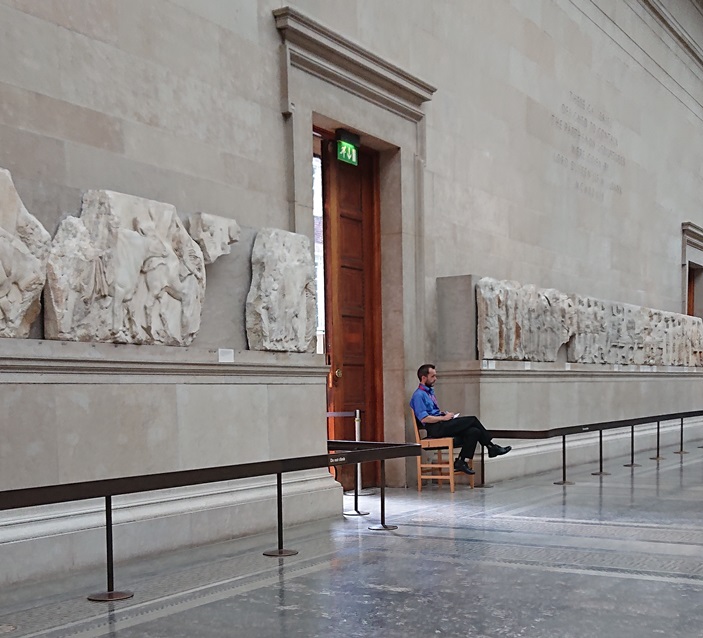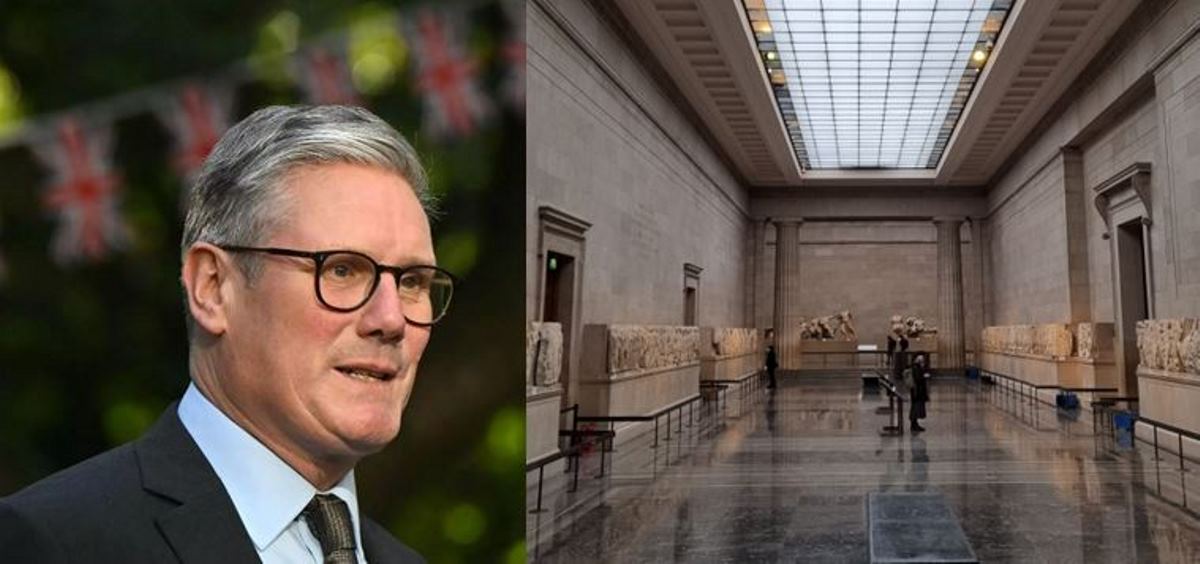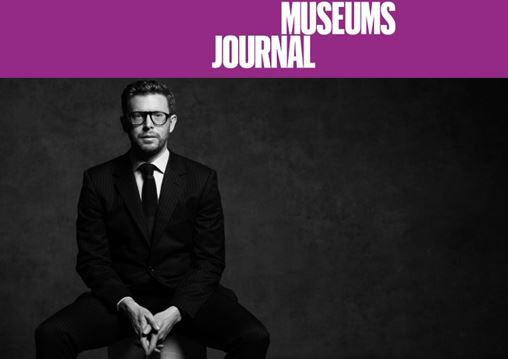Italy returns Parthenon fragment
President Napolitano places the returned fragment in the Acropolis Museum.
Italy's president has returned a piece of the frieze from the Parthenon temple to Greece after some 200 years.
President Giorgio Napolitano said the move was part of a campaign to restore artefacts "torn from their context".
The fragment of a goddess's leg will be on show in the Acropolis Museum, designed to reunite all the surviving sculptures from the temple.
The British Museum refuses to send back its own collection of sculptures from the Parthenon - the Elgin Marbles.
Most of the surviving sculptures from the Parthenon - built on the Acropolis overlooking Athens in the fifth century BC - are either in Athens or in the British Museum.
Greece has long campaigned for the return of those sculptures which are in London, most of which were removed by the British envoy Lord Elgin in the early 19th century.
The Greek authorities plan to combine their own sections of the frieze and other sculptures with those from the British Museum and a number of smaller pieces which are scattered in museums across Europe.
The piece returned by President Napolitano on 23 September had been in Palermo, Sicily, since the early 19th century. It is now on permanent loan to the Acropolis Museum.
In 2006 a smaller fragment of the Parthenon frieze - a man's heel - was returned to Athens by the University of Heidelberg in Germany.
Vatican move?
The same year, a retired Swedish teacher returned a fragment of the neighbouring Erechtheion temple.
At the handover of the Palermo fragment Louis Godart, cultural adviser to President Napolitano, claimed that two pieces of the Parthenon sculptures held in the Vatican museums would be handed over to the Acropolis Museum on 8 October.
The fragment is part of a goddess's leg from the north frieze of the Parthenon.
Such a handover would represent a change of policy by the Vatican, which has not previously acceded to appeals by the Greeks for the sculptures' return.
Commenting on the latest handover, Professor Tony Snodgrass of the British Committee for the Unification of the Parthenon Marbles said: "That's good news... it certainly does look like a trend.
"We now await hearing from Copenhagen, Würzburg, Munich, Vienna and Paris, who all have pieces too."
The British Museum said in response to the Italian move that its trustees' position on the sculptures remained unchanged.
"Here in London the sculptures are an important part of a world collection which is free to all and which allows six million visitors a year to explore the complex network of interconnected world cultures," it said in a statement.





Comments powered by CComment